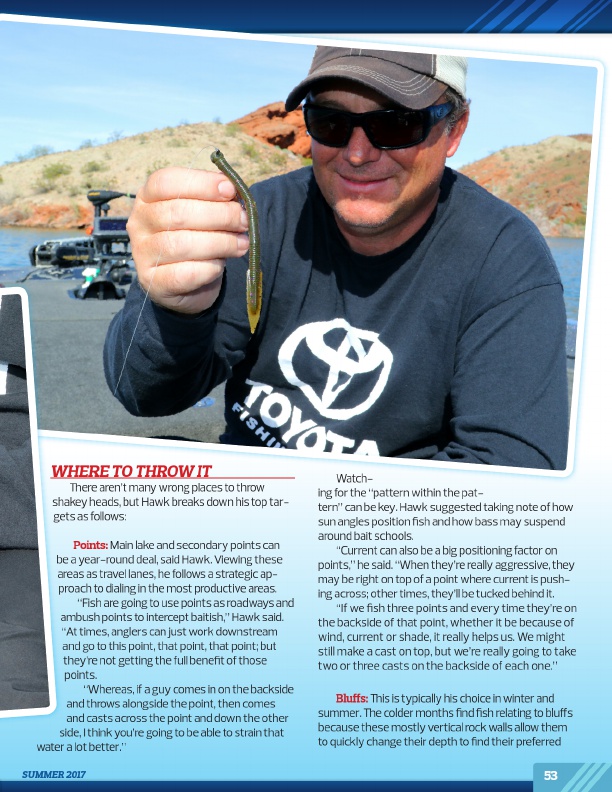
WHERE TO THROW IT
There aren’t many wrong places to throw shakey heads, but Hawk breaks down his top tar- gets as follows:
Points: Main lake and secondary points can
be a year-round deal, said Hawk. Viewing these
areas as travel lanes, he follows a strategic ap-
proach to dialing in the most productive areas.
“Fish are going to use points as roadways and
ambush points to intercept baitish,” Hawk said.
“At times, anglers can just work downstream
and go to this point, that point, that point; but
they’re not getting the full benefit of those
points.
“Whereas, if a guy comes in on the backside
and throws alongside the point, then comes
and casts across the point and down the other
side, I think you’re going to be able to strain that water a lot better.”
SUMMER 2017
Watch- ing for the “pattern within the pat- tern” can be key. Hawk suggested taking note of how sun angles position fish and how bass may suspend around bait schools.
“Current can also be a big positioning factor on points,” he said. “When they’re really aggressive, they may be right on top of a point where current is push- ing across; other times, they’ll be tucked behind it.
“If we fish three points and every time they’re on the backside of that point, whether it be because of wind, current or shade, it really helps us. We might still make a cast on top, but we’re really going to take two or three casts on the backside of each one.”
Bluffs: This is typically his choice in winter and summer. The colder months find fish relating to bluffs because these mostly vertical rock walls allow them to quickly change their depth to find their preferred
53